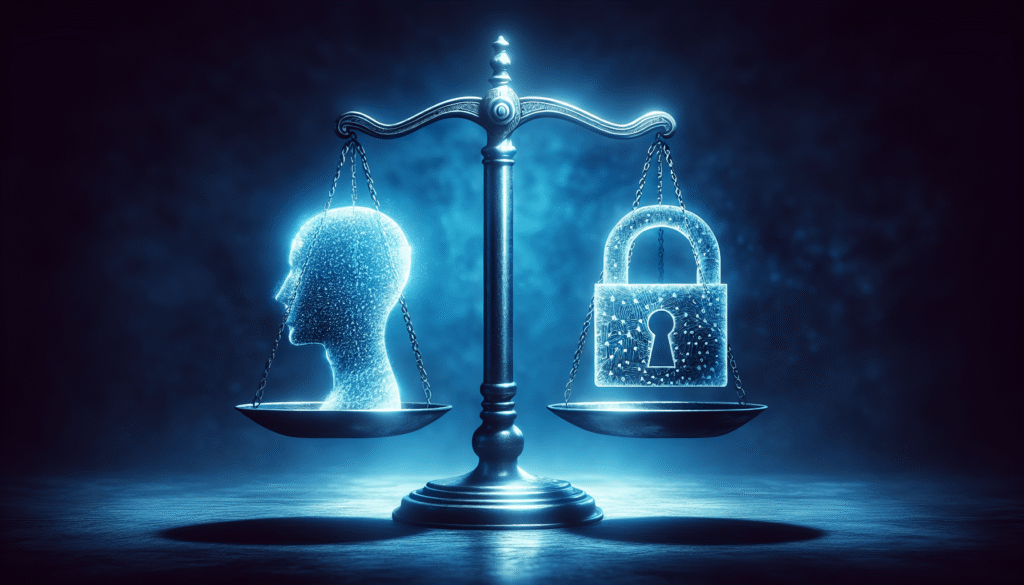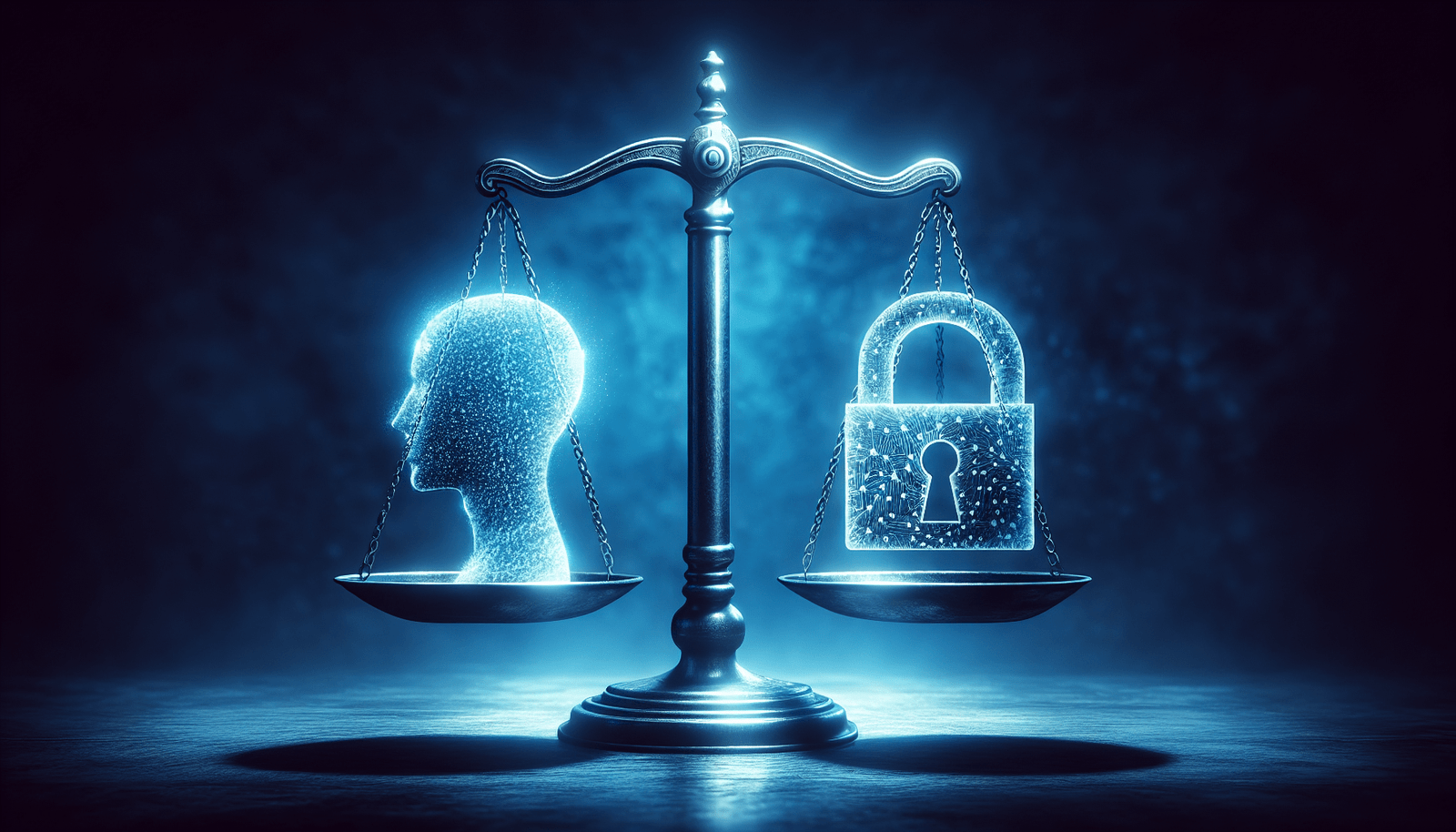Have you ever wondered if you can truly have both security and privacy in a world where technology seems to know no boundaries? It’s a question that many are grappling with as our lives become increasingly digital. The balance between keeping information safe and maintaining personal privacy can be delicate, yet understanding this balance is essential in navigating today’s interconnected world.

This image is property of images.unsplash.com.
Understanding Security and Privacy
Before delving into whether you can have both security and privacy, it’s important to understand what these concepts mean individually. Security generally refers to the measures taken to protect your data from unauthorized access or harm. On the other hand, privacy is about controlling who can access your personal information. While they often overlap, they aren’t identical, and each serves a distinct purpose.
Security in the Digital Age
Security in the digital realm encompasses a wide range of practices and technologies. From antivirus software to complex encryption protocols, digital security aims to protect information integrity, availability, and confidentiality. With cyber threats becoming increasingly sophisticated, prioritizing security is more crucial than ever.
Privacy and Its Importance
Privacy concerns itself with managing who gets to see your information and how much of it is accessible to others. Personal privacy becomes particularly important as more of your life moves online, where companies and entities often seek to collect your data for various purposes. The ability to control this access can empower you and provide peace of mind.
The Tension Between Security and Privacy
The interplay between security and privacy isn’t always harmonious. In some scenarios, enhancing security might mean sacrificing a bit of privacy, and vice versa. However, understanding this tension can help you make informed decisions about your digital footprint.
When Security Compromises Privacy
Sometimes, in efforts to boost security, privacy might inadvertently be diminished. For example, security cameras set up for surveillance might create concerns about constant monitoring and data collection. The objective is often noble—keeping people safe—but it can make individuals feel like they’re under constant watch.
When Privacy Hinders Security
Conversely, prioritizing privacy can sometimes mean less security. For instance, if you choose not to share certain data that a security system uses to verify your identity, you might not fully benefit from its protective capabilities. Finding a balance where both can coexist is often the end goal.
Strategies for Balancing Security and Privacy
To have both security and privacy, it’s crucial to implement strategies that address both needs simultaneously. By making thoughtful choices, you can navigate this balance more effectively.
Strong Passwords and Multi-Factor Authentication
One straightforward approach to enhance both security and privacy is through robust password management and multi-factor authentication. By securing your accounts with strong, unique passwords and adding an additional layer of protection via multi-factor authentication, you not only safeguard your data but also control who accesses it.
Use of Encryption
Encryption is a powerful tool that can help maintain both privacy and security. By encrypting your data, you ensure that even if unauthorized entities access it, they can’t read it without the proper decryption key. This keeps your personal information private while also securing it from potential threats.
Regular Software Updates
Keeping your software and applications updated is fundamental for security. Updates often patch vulnerabilities that could be exploited by malicious actors. Regular updates can dramatically reduce security risks while ensuring your data privacy remains intact.
How to Quickly Delete Your Personal Data
Deleting your personal data can often feel like an overwhelming task, but when done correctly, it offers peace of mind and a stronger sense of privacy. Various methods can speed up the process and simplify it.
Using Data Deletion Tools
Many digital platforms and services offer tools or features specifically designed for data deletion. These tools can help you identify what data is stored and guide you through deleting it quickly. Ensure you thoroughly check all accounts and use the available tools to streamline the process.
Manual Deletion Steps
While tools can be useful, some data may require manual deletion. This might mean going through your accounts, managing your cookies, and reviewing each service’s data policies. Although more labor-intensive, manual deletion offers a comprehensive method to ensure nothing is overlooked.
Requesting Data Deletion from Companies
You have the right to request companies to delete your data in many jurisdictions. This process can often be initiated by contacting the company’s customer service. It’s an important step for ensuring your information isn’t being stored without your consent.

This image is property of images.unsplash.com.
Understanding Data Privacy Laws
Data privacy laws play a crucial role in protecting your personal information. Being aware of these laws can help you demand your rights and better control your data.
GDPR and Its Impact
The General Data Protection Regulation (GDPR) is a landmark law in the European Union aimed at giving citizens more control over their personal data. It’s vastly influenced how companies globally handle data privacy and serves as a benchmark for understanding your rights.
CCPA: California Consumer Privacy Act
The California Consumer Privacy Act (CCPA) is another significant regulation that aims to protect consumer privacy. Under CCPA, you have the right to know what data is collected, why it’s collected, and the option to delete it. Being aware of these rights is key to maintaining your privacy.
Other International Privacy Laws
Other countries have their own privacy laws, each with varying degrees of protection. Familiarizing yourself with these regulations, especially if you live outside the EU or California, can further help you in managing your privacy effectively.
Tips for Protecting Your Security and Privacy
Here are some actionable tips you can follow to maintain both security and privacy:
- Be Vigilant About Phishing Scams: Always scrutinize emails or notifications that request personal information or financial details.
- Use a Secure VPN: Utilizing a VPN can encrypt your data and maintain your privacy when browsing the internet.
- Be Cautious with Public Wi-Fi: Avoid accessing sensitive information or accounts on public networks, as they are typically less secure.
- Limit Social Media Sharing: Review the data you share publicly and with third-party apps linked to your accounts.
- Secure Your Devices: Ensure all your devices have strong passcodes or biometrics as an additional layer of security.

This image is property of images.unsplash.com.
The Role of Technology in Enhancing Security and Privacy
Technology plays a significant role in determining how successfully you can balance security and privacy. Innovations continue to evolve, offering ways to enhance both simultaneously.
Artificial Intelligence in Security
Artificial Intelligence (AI) is increasingly being used to develop sophisticated security systems. From predicting cyber threats to providing personalized security measures, AI can offer enhanced security solutions while keeping your privacy in check.
Blockchain Technology
Blockchain’s decentralization offers robust security features by making it harder for hackers to alter data. Its transparency and immutability can potentially improve privacy by allowing accountable yet private transactions.
The Future of Security and Privacy
As technology evolves, so will the challenges and opportunities presented by security and privacy. Being informed and adaptive will be key as the landscape of data management shifts.
Emerging Threats and Solutions
Be prepared to face new types of cyber threats as technology evolves, but also expect innovative solutions that empower both security and privacy. Staying informed about these trends will help you stay ahead.
An Optimistic Outlook
While challenges persist, advancements in technology, coupled with stronger regulations and increased consumer awareness, offer a positive outlook. You have the power to protect your information and ensure your privacy by taking proactive steps in this digital age.
By understanding how security and privacy intersect and implementing effective strategies, you can confidently manage both areas in your life. Balancing these aspects may require effort, but with the right knowledge and tools, it’s entirely possible to live securely and privately in today’s digital world.



